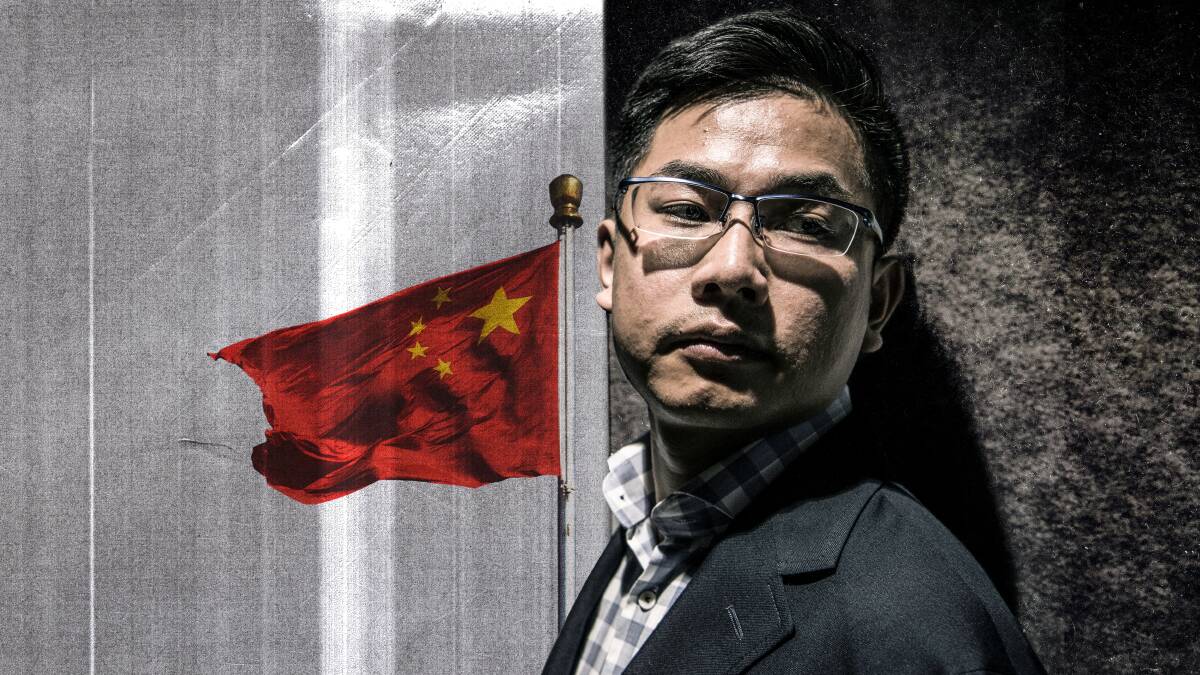As Australia's security agencies investigate claims by a defector to have been a Chinese spy, China experts and commentators are doing their own digging into Wang Liqiang's claims.
Subscribe now for unlimited access.
$0/
(min cost $0)
or signup to continue reading

A former Canberra public servant, Yun Jiang, who has now left the bureaucracy to run a China newsletter, casts doubt on Mr Wang's claims, saying some of what he says is not true and other claims cast doubt on his credibility.
Former prime minister Kevin Rudd, who has just returned from China, said he had no special insight into the case, but in his experience "not everyone who walks through the door is completely orthodox and accurate in what they say". If Wang Liqiang's spy claims panned out, asylum should be granted, Mr Rudd said.
China says Australian media have been taken in in an "unbelievably award farce" and Mr Wang is nothing but an "ex-con".
The comments came as the director-general of the Office of National Intelligence, Nick Warner, warned at a Senate estimates hearing that Australia was facing unprecedented levels of foreign interference and espionage.
Ms Jiang, whose has just left eight years in the public service including Prime Minister and Cabinet, edits a new China newsletter with Adam Ni, who lies in Taiwan.
The pair say many of Mr Wang's spy claims are "general and vague", including the operations he claimed to have been part of in Hong Kong and Taiwan - which were already on the public record. Mr Wang also appeared not to have a solid grasp of Hong Kong politics.
He had misnamed the Central Military Commission's joint staff department, which conducts military intelligence operations. His claim to have been the boss of a "cyber army" in Hong Kong was unlikely given his age and expertise, and his descriptions of cyber operations did not smack of expertise.
It was also highly unusual for a junior operative - which Mr Wang must have been given he is only 27, to play a big role in so many high-profile operations in different jurisdictions in a short period of time.
It was surprising that China would allow his wife and child to be based in Australia, it seemed unlikely that he would travel to Australia on a holiday visa, and his fake Korean passport appeared amateur.
While it appeared that he did not speak English, English would have been important for an operative in Hong Kong. Nor was there evidence he spoke Korean, despite his claim to have been given a Korean passport to meddle in Taiwan's elections.
"There may be explanations for some or all of the above observations that are in Mr Wang's favour. But given the total weight of these observations, we are sceptical of Mr Wang's claims and credibility," Ms Jiang and Mr Ni said in their newsletter.
Strategic Policy Institute China expert Alex Joske said the pair were "jumping the gun" and making assumptions without seeing Mr Wang's full statement.
Mr Joske has reviewed Mr Wang's detailed confession. He also highlighted his youth, lack of rank in Chinese military intelligence, and unusual route to intelligence, but said there was support for his claims, including his claimed link with Hong Kong businessman Xiang Xin. There were also reasons to doubt China's claim that he was a convicted fraudster who left China on a fake passport.
Federal parliament was awash with the fall-out from his defection, and the death of a Liberal Party member in March who reported being offered $1 million by Chinese influence agents and urged to stand for Parliament.
At a Senate estimates hearing, Liberal James Paterson, who was recently blocked from visiting China on a study tour, asked Mr Warner for an update on foreign interference in Australia.
Mr Warner said it was the responsibility of Home Affairs, but ASIO head Mick Burgess's public statement on the weekend about his investigation into the attempt on parliament was "quite unusual".
As former ASIO director Duncan Lewis had said, "foreign interference into Australia and espionage against Australian are at unprecedentedly high levels and we need to take these issues very seriously", Mr Warner said.
He would also not speak about geopolitical trends in foreign interference, citing operational matters and ongoing investigations.
"By broader definition if there is foreign interference into any country's domestic affairs, political or otherwise, or if there's espionage against you polity, against your parliament, against your bureaucracy, against your defence industries, those are very serious matters depending on the extent," Mr Warner said.

